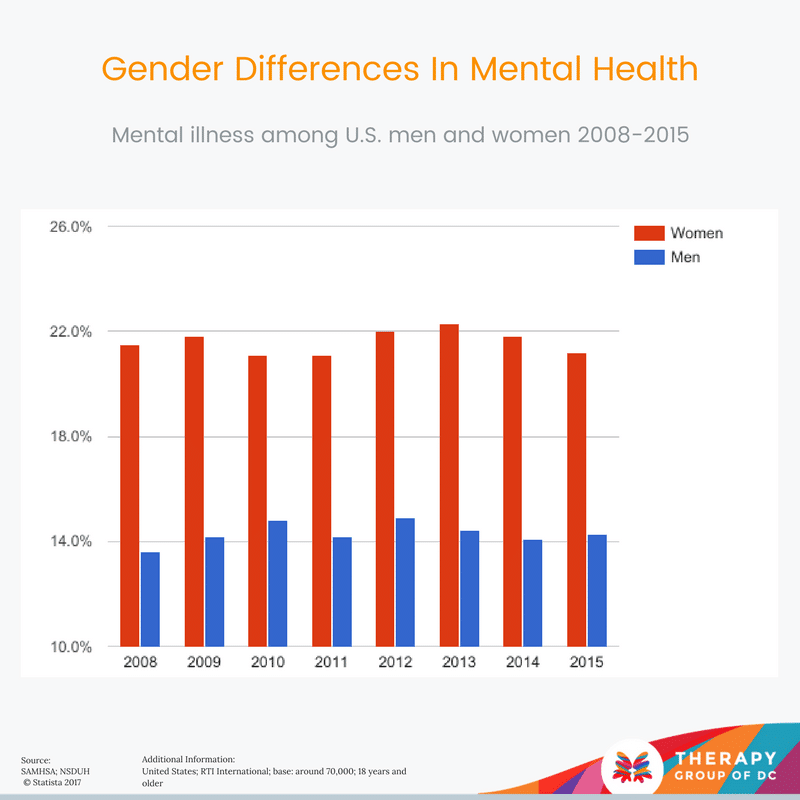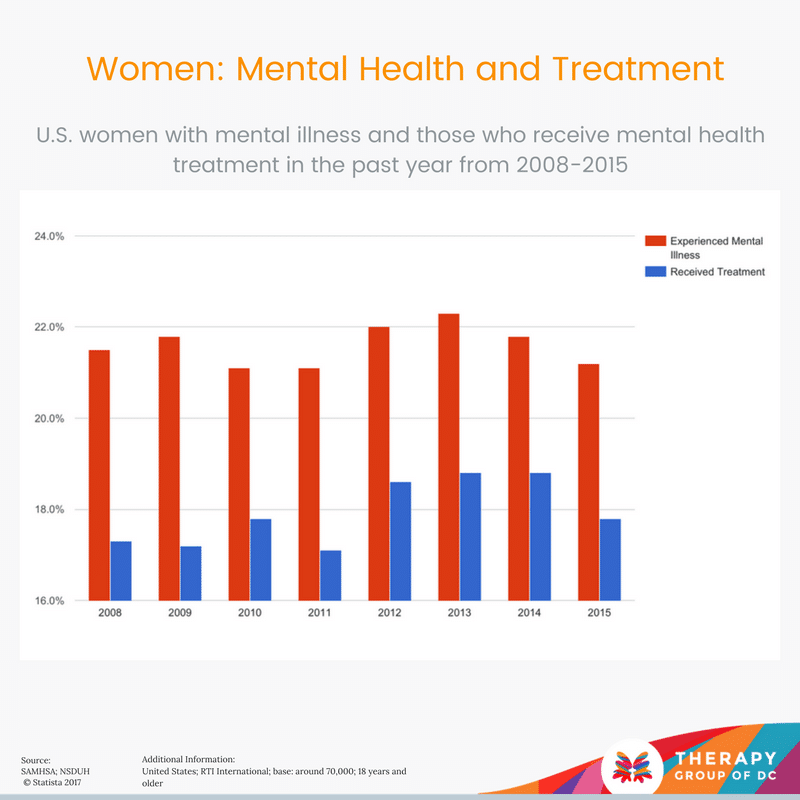Brave Conversations: A Women’s Mental Health Summit
There’s been a surge in celebrities openly advocating for less stigma around mental health and discussing help-seeking. Public figures are using their high visibility to raise awareness of mental health and the benefits of therapy.
Outside of public view, our daily work in our therapy offices in Washington DC is helping people to improve their mental wellbeing and to combat shame, judgment, and stigma. We’ve come to learn that if we’re determined to address mental health, we must start in our communities and provide tangible resources to those in need of help. Celebrity advocacy for mental health awareness is noteworthy. It can start important conversations about mental health de-stigmatization, especially for women. Our hope at the Therapy Group of DC is that we can build on those discussions.
Women and Psychological Distress
In the United States, women in every age group are more likely than men to experience serious psychological distress, according to a 2015 report from the National Center for Health Statistics, part of the Centers for Disease Control and Prevention.
This chart of Substance Abuse and Mental Health Services Administration (SAMHSA) data reveals the same gender dichotomy.
According to leading researchers and authors, women are prone to internalizing their mental illnesses, leading to higher rates of depression, eating disorders, and anxiety and sleep problems. In case you’re curious, men are more apt to externalize leading to higher rates of substance abuse, anger, and aggressive behavior.
Women and Mental Health Treatment and Therapy
According to SAMHSA and it’s National Survey on Drug Use and Health, it was estimated that 21.2 percent of women in the U.S. had some sort of mental illness in 2015. During that same year, an estimated 17.8 percent of U.S. women received mental health treatment or counseling, down from recent years.
We’re curious to see 2016 figures when they are released. We’ll then be better able to ascertain if rates of receiving mental health treatment are on a new downward trend, or if 2015 was an anomaly. Either way, as this chart shows, many women struggle with mental health concerns, such as diurnal symptoms of depression (that is, what people call morning depression or nighttime depression), who don’t receive treatment like therapy.
Thinking Local: Mental Health for Women in Washington, DC
We’re aware that Washington, DC is a magnet for political go-getters and other professionals with high-stress careers. Added to those stressors, it seems that almost everyone, regardless of political affiliation, needs body armor and loads of emotional resilience just to get through their Twitter and Facebook feeds these days. Lastly, DC is also home to a large underserved population without access to affordable mental health care.
As therapists in DC, we task ourselves with how can we start to make things better for everyone. We don’t have all the answers, but raising awareness, starting conversations, and building connections is a good place to start.
This is My Brave
To that end, our practice was proud to sponsor of Leading Ladies #LiveBrave: A Women’s Mental Health Summit. The summit featured keynote speaker Elizabeth Vargas from ABC’s 20/20 and female storytellers from diverse backgrounds. The event provided a platform for women to share personal stories of resilience and hope through poetry, music, comedy, and essay.
With the increased emphasis on women’s rights and responsibilities, an event promoting women’s mental health and well-being was most deserving of our positive attention.
This is My Brave works to de-stigmatize mental illness. It encourages educating, seeking help, and having a dialogue about living with mental health without shame or self-imposed judgment.
We’re Here to Listen
We are a collection of accepting therapy experts and specialists – we often refer to ourselves as therapy nerds – with individual styles and strengths dedicated to making our community better. Everyone is welcome here. Let us know if we can be of help.


